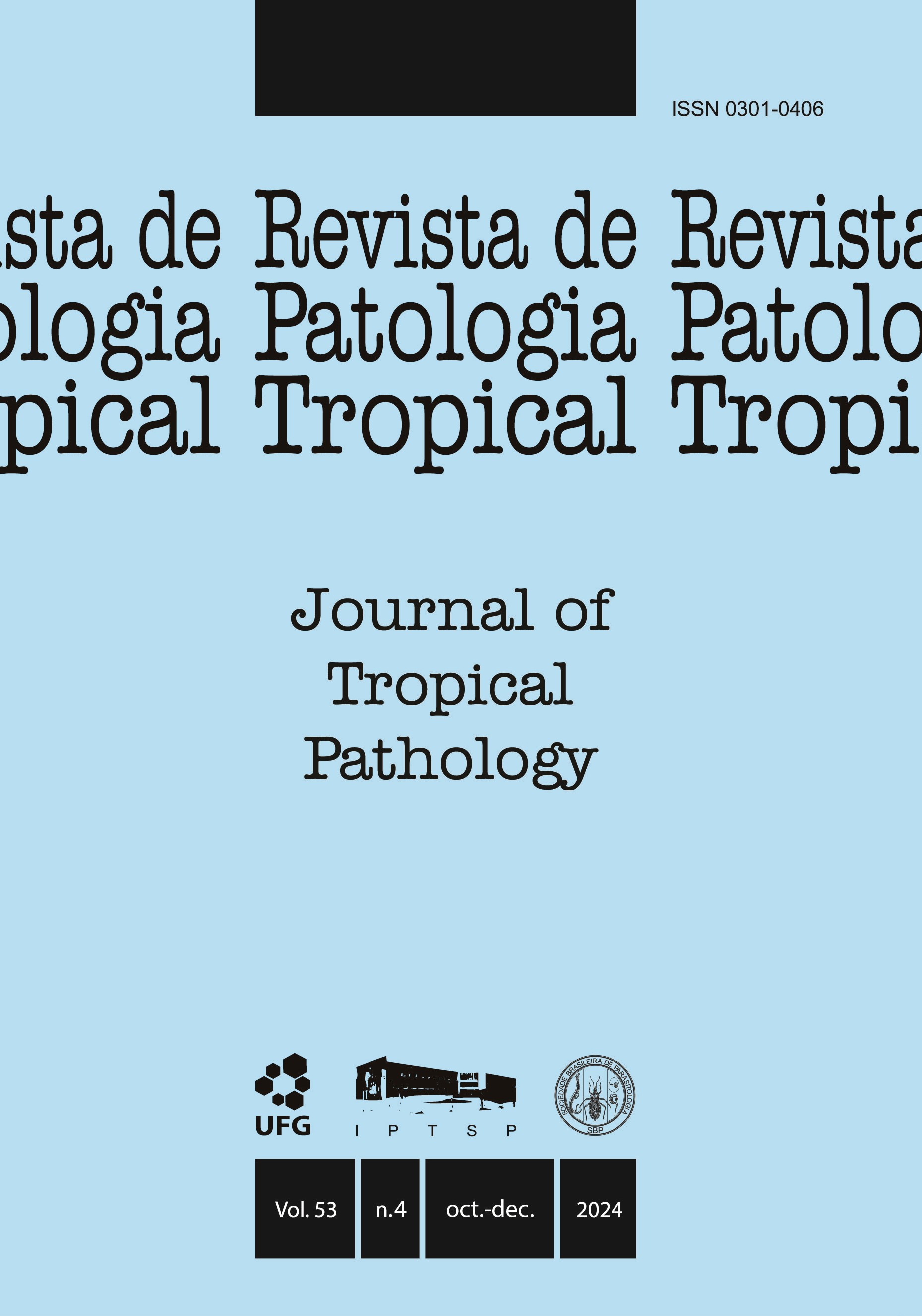Natural arboviruses infection in immatures and adults of the Aedes genus (diptera: culicidae) in the state of Minas Gerais: a systematic review
DOI:
https://doi.org/10.5216/rpt.v53i4.78759Resumo
Arboviruses are considered a burden for public health systems around the world. Brazil, a country that is hyperendemic for arboviruses, the state of Minas Gerais has recorded the second highest number of probable dengue cases in 2024. To systematically review the literature on natural arboviruses infection in both immatures and adults of the Aedes genus in Minas Gerais, Southeast Region of Brazil. This systematic review adhered to the established standards of the Preferred Reporting Items in Systematic Reviews and Metanalyses (PRISMA). The studies were searched in the BVS, SciELO, and PubMed databases. Nine of 524 studies were included and published between 1993 and 2024. Both immatures and adults of Aedes aegypti accounted for the largest number of specimens captured (49.7%). The positivity rate of Ae. aegypti infected by DENV ranged from 0.18% to 32.1% and 5.5% to 16.9% for larvae and adults, respectively. Adult specimens of Ae. aegypti also tested positive for CHIKV. Some specimens of Ae. albopictus, Ae. scapularis, Ae. argyrothorax and Ae. serratus tested positive for YFV. Among the specimens of Aedes collected in the state of Minas Gerais, Ae. aegypti presented the highest percentage of natural arbovirus infection. The majority of specimens analyzed were naturally infected with DENV.
KEYWORDS: Dengue virus; Chikungunya virus; Zika virus; Yellow fever.
Downloads
Downloads
Publicado
Como Citar
Edição
Seção
Licença
The manuscript submission must be accompanied by a letter signed by all authors stating their full name and email address, confirming that the manuscript or part of it has not been published or is under consideration for publication elsewhere, and agreeing to transfer copyright in all media and formats for Journal of Tropical Pathology.

